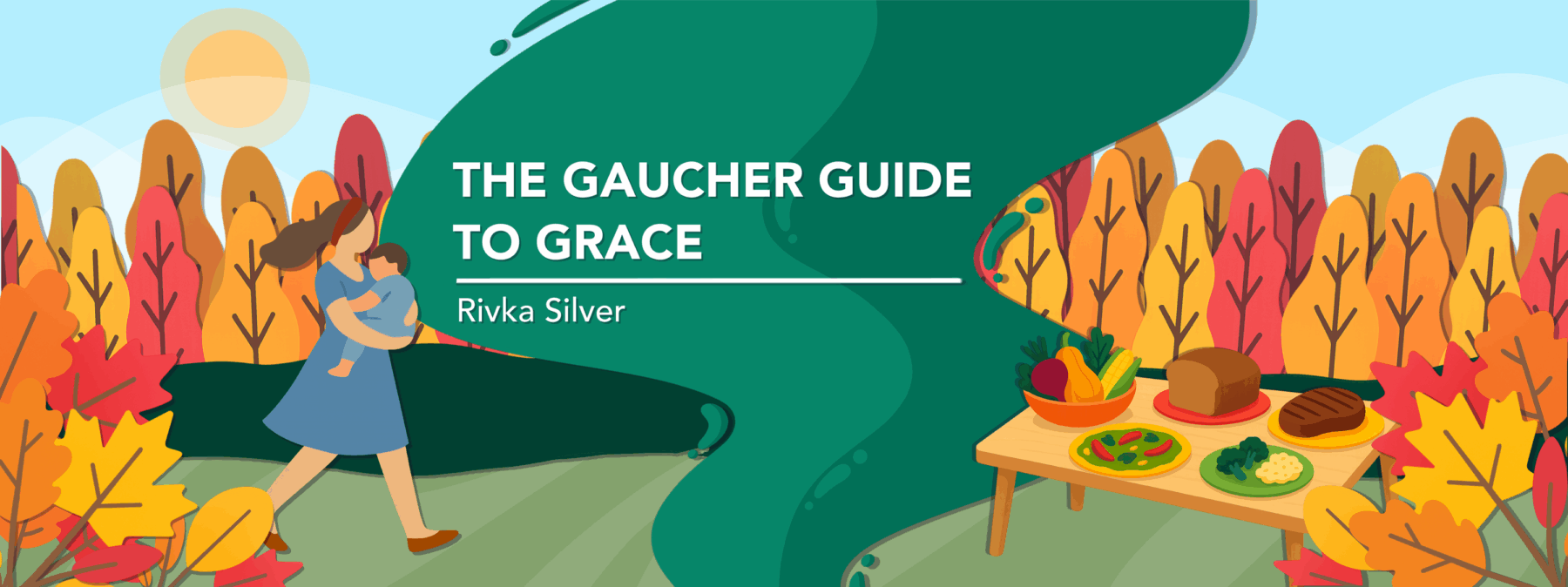Finding moments of grace in seasons of change
Recent hospital stay shows we must meet each transition as best we can
Written by |

Now that we’re in the month of November and the leaves and weather have shifted to fall, I’ve been reflecting on the idea of transitioning through seasons. Time often feels linear, but the beauty of seasons is that they bring cycles of change: moments of growth, transition, and movement.
I find myself now at the end of a very chaotic time. With the whirlwind of Jewish holidays and family events that filled October, we barely spent more than 48 hours at home. And then, just when I thought life might slow down, I landed in the ER.
What began as blurry vision led to an urgent ophthalmology visit, a swollen optic nerve, and an immediate referral to the hospital. Within hours, we were packing up the car, dropping our baby off at my parents’ house, and heading toward a weeklong hospital stay for which we were completely unprepared.
I was admitted that night, making it our first time away from our baby with no warning or preparation. I’ve never been hospitalized because of my Gaucher disease, but being in that environment brought up a lot of familiar feelings. The unknowns and all the diagnostic terminology can feel incredibly overwhelming, not to mention the lack of windows and that typical hospital smell.
The next day was filled with a lot of intensive tests that were scary and painful. Thankfully, everything came back fine, but it reminded me how easy it is to forget how strong we really are. In those moments, all I could think about was my baby, whom I had never been away from for more than a few hours.
Life keeps moving even when we must pause
Even though my hospital stay wasn’t related to Gaucher, it made me reflect on how much living with a chronic illness shapes the way I experience these moments. There’s always a certain level of uncertainty, wondering when things might change or when a new challenge might appear. It reminded me how fragile our sense of “normal” can be and how much effort it takes to adapt each time life shifts direction.
When I finally returned home, I was struck by how much my baby had changed in just one week. He was saying more words, his movements were more deliberate, and he was almost ready to take his first steps. He just seemed like a bigger boy. It felt like he had lived through his own season of growth while I was away.
And maybe that’s what these moments of interruption — the sudden illness, the unexpected hospital stay — are meant to show us: that life keeps moving, even when we have to pause.
Just as the trees shed their leaves in preparation for renewal, my time in the hospital stripped me of my usual routines and control. It forced me to be still, to let others take care of me, and to trust that growth could still happen even when I wasn’t the one in motion.
Living with Gaucher disease often feels like moving through seasons, too. Some are full of energy and progress, while others demand rest and patience. But each one brings something valuable: a reminder of resilience, the importance of slowing down, or the love that fills the spaces I have to step away from.
As I settle back into daily life and the air grows cooler, I’m trying to hold onto that awareness. The seasons will continue to change, as will I. Maybe that’s what living with Gaucher — and life in general — is about: learning to meet each transition, even the unexpected ones, with as much grace as we can.
Note: Gaucher Disease News is strictly a news and information website about the disease. It does not provide medical advice, diagnosis, or treatment. This content is not intended to be a substitute for professional medical advice, diagnosis, or treatment. Always seek the advice of your physician or other qualified health provider with any questions you may have regarding a medical condition. Never disregard professional medical advice or delay in seeking it because of something you have read on this website. The opinions expressed in this column are not those of Gaucher Disease News or its parent company, Bionews, and are intended to spark discussion about issues pertaining to Gaucher disease.





Leave a comment
Fill in the required fields to post. Your email address will not be published.